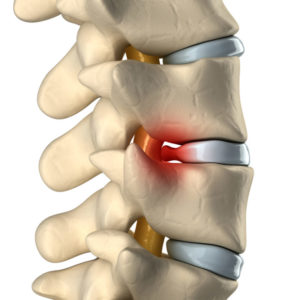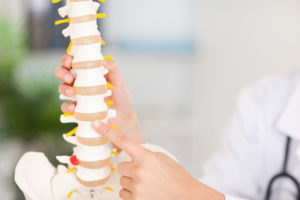Suffering from a Herniated Disc?
Herniated Disc, also known as herniated intervertebral disc, is a problem with one of the rubbery cushions between the bones that make up the spine.
A spinal disc has a softer center covered within the tougher exterior. Disc herniation usually occurs when some of the fluid in the center pushes out through a crack in the hard exterior.
A herniated disc can irritate the surrounding nerves and cause an immense amount of pain, weakness and numbness.


Causes of Herniated Disc
Disc herniation is triggered by a steady, aging-related wear and tear commonly known as disc degeneration. As we grow old, our spinal discs lose their water content, making them less flexible and more susceptible to tearing even with a slight strain.
The majority of people cannot identify the root cause of their herniated disc. Sometimes, picking up heavy objects with incorrect lifting technique can cause extra strain on your back muscles instead of your leg and thigh muscles.
Signs and Symptoms of Herniated Disc
The most common sign of a herniated disc is sciatica, a sharp pain that radiates along the path of the sciatic nerve, which runs from the lower back through the hips and buttocks and down both the right and the left leg causing weakness, numbness and sharp pain.
Aside from sciatica, neck pain is also a common sign. A herniated disc in the cervical (neck) area of the spine can apply pressure to the nerves which can cause numbness, pain and tingling across the shoulders and down through the arms.
Least common, is a is a herniated disc in the thoratic (middle) part of the spine. Symptoms can include pain across the back and can sometimes radiate into the chest and down into the abdomen.

